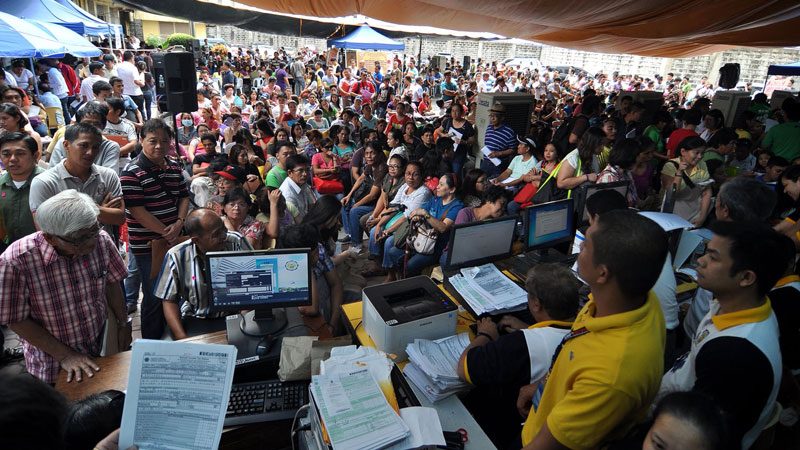The foreign business community has thrown its full support behind the proposed reduction of personal and corporate income taxes in the Philippines as this could boost the flow of trade and investment in the country.
At the same time, the Joint Foreign Chambers (JFC) also called for an increase in taxes on consumption to ensure enhanced public sector revenue inflows.
“Achieving the goal of lower income and higher consumption taxes is a process that will take a number of years. The current administration has yet to adopt a policy to make comprehensive changes in income and consumption taxes. Its sole major tax reform has been to raise taxes on alcohol, cigarettes and tobacco. The chairs of the Senate and House Ways and Means committees have taken the lead to propose reforms to correct inequities in the current income tax system, which we support,” the JFC said in a statement issued Tuesday.
Foreign businessmen pointed out the need to make changes in the current regime as the taxes were set back in 1997. Adjustments, the group stressed, have “not been made frequently enough to remedy a growing inequity as more and more salaried workers are paying the highest tax bracket.”
The Philippines imposes the second-highest personal income tax and the highest corporate income tax among six Asean countries. Personal income tax in the Philippines stood at 32 percent, while Thailand has 35 percent (reduced from 37 percent in 2010); Vietnam, 35 percent; Indonesia, 30 percent; Malaysia, 26 percent (to be reduced to 25 percent in 2016), and Singapore, 20 percent. Philippine corporate income tax stood at 30 percent, while Indonesia and Malaysia imposes a 25 percent tax; Vietnam, 22 percent (reduced from 35 percent in 2010); Thailand, 20 percent (reduced from 35 perecnt in 2010); and Singapore, 17 percent.
Meanwhile, the JFC advocated raising consumption taxes in parallel with reducing income taxes.
“However, we recognize that raising taxes can be unpopular and difficult to achieve close to national elections, especially the value added tax (VAT), which at 12 percent is the highest of the six Asean economies,” the JFC said.
“We also recommend an increase in excise taxes in gasoline as fuel prices are expected to stay very low for at least several years. At $45 a barrel, crude oil prices in the world market have drastically declined to one-third of the $145-a-barrel price at their peak in July 2008. Lower gasoline prices have encouraged car owners to drive more, aggravating traffic and adding to air pollution in Metro Manila and elsewhere in the country,” the group added.
On another note, the JFC also expressed support for the advocacy of the Department of Finance to amend the Bank Secrecy Law (Republic Act No. 1405) and strengthen the Anti-Money Laundering Act (RA No. 9160, as amended).
“A draft bill (on bank secrecy) should be submitted to Congress as soon as possible, while AMLA amendments under consideration in the Congress have not been reported out of the committee. If approved, the Philippines would no longer be counted among three countries in the world (with Lebanon and Switzerland) as having strict bank secrecy laws. The Philippine revenue collection authorities would have better access to domestic bank accounts in order to strengthen their capacity to collect the correct personal income taxes from all taxpayers,” the JFC explained.
“However, we do not think that the passage of Bank Secrecy Law or AMLA amendments should be conditions precedent for passing the income tax reform proposed in the House and Senate,” it added.


